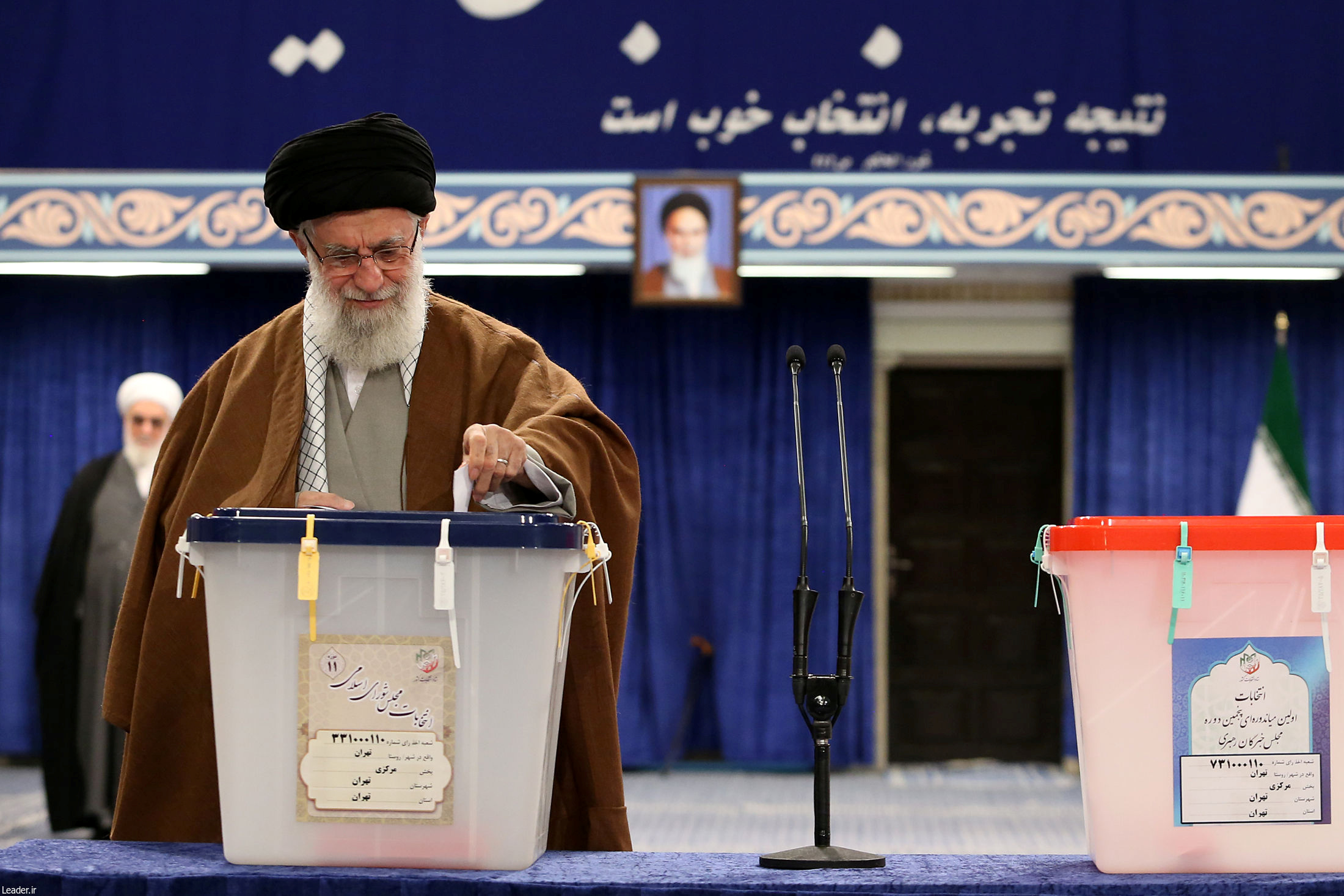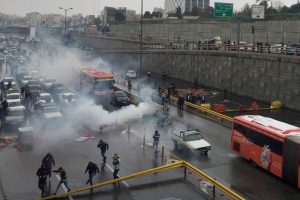Publications
INSS Insight No. 1262, February 24, 2020

Official though not yet final results of the parliamentary elections held in Iran on February 21, 2020 show a landslide victory by the conservative right (200 out of 290 seats, versus under 20 seats won by reformist candidates). This victory was expected in view of the sweeping disqualification by the authorities of most of the reformist candidates. The low voter turnout (slightly over 40 percent) reflects the ongoing erosion of public trust in the political system. Over time this erosion could undermine the legitimacy of the regime, which to a large extent depends on its ability to maintain at least the appearance of popular representation in state institutions. The return of absolute control of the Majlis to the conservatives could create even more difficulties for President Hassan Rouhani in his last year of office, and is a possible preliminary sign regarding the next presidential elections, expected to be held in the summer of 2021. Preparations for the parliamentary elections, and the predicted outcome, are evidence of the regime’s determination to maintain conservative domination over all the centers of power while approaching the end of the era of Supreme Leader Ali Khamenei, particularly in view of the growing challenges both at home and abroad. This control is perceived by the regime as essential for its stability, although it does not help it provide a solution to the popular grievances that continues to feed the protest movement. At the same time, the future of the protests depends on a range of factors that are hard to foresee, such as further exacerbation of the economic crisis and the effectiveness of the suppression and other preventive measures by the authorities.
The elections to the eleventh Majlis, held in Iran on February 21, 2020, aroused interest largely as the first significant test of strength for the two main political camps in Iran - the conservatives and the pragmatists-reformists - since the United States withdrew from the nuclear agreement and reintroduced sanctions against Iran, and against the background of the waves of protest that have swept through the country over the last two years.
Notwithstanding the call to the Iranian public by senior officials, led by Supreme Leader Ali Khamenei, to do their “civic and religious duty” and vote, voter turnout was about 42 percent – the lowest since the Islamic Revolution. For the sake of comparison, the last two elections to the Majlis (in 2012 and 2016) saw voting rates of over 60 percent. In the elections in 2004 and 2008 voter turnout was lower (just over 50 percent), but in the elections in 1996 and 2000 it was higher (about 70 percent). Voter turnout in Tehran this year was even lower, less than 30 percent. This low rate was expected, particularly following the extensive disqualification of more than 50 percent of candidates by the Guardian Council, including dozens of serving members of the Majlis. These disqualifications sparked strong criticism, even from President Hassan Rouhani, who just before the elections warned of the consequences for the people’s freedom of choice and declared that had the Shah agreed to hold free elections, he could have prevented the Revolution.
Low voter turnout reflects the ongoing erosion of public trust in the regime and the political system on the part of the two principal political camps. This erosion is due to a growing sense of despair, frustration, and disappointment over the failure of politicians, both conservative and reformist, to respond to the public’s needs. The conservatives are perceived as representing a religious and revolutionary world view that no longer matches the will of the people, particularly the younger generation. On the other hand, the reformists are perceived as lacking real influence and having failed to implement their promises to the public due to their inept conduct, and given conservative control of most centers of power in the country. In this situation, many citizens believe that there is no point in participating in elections, since the impact on their lives will in any case be very limited.

Over time, low voter turnout undermines the legitimacy of the regime, which to a large extent depends on its ability to maintain at least the appearance of popular representation in elected political institutions. Nevertheless, even a voting rate of under 40 percent could show that fairly broad sections of the Iranian public, particularly outside Tehran, still choose to participate in elections rather than boycott them, whether out of support for the regime, an assessment that at present there is no meaningful alternative to the existing political order, or concern that a boycott of elections could lead to even more extreme policies on the part of the authorities. This concern could explain why, in spite of calls by some prominent reformist intellectuals and Iranian exiles to boycott the elections, most politicians identified with the reformist camp called on the public to vote, particularly in view of their wish to restrain, if only to some extent, the power of the conservatives and the radicals in the new Majlis.
The official though not yet final election results indicate a landslide victory for the conservative right. The conservatives have dramatically increased their representation in the Majlis since the previous elections, in which the pragmatist supporters of President Rouhani grew from a relatively negligible minority (a few dozen representatives) to a substantive bloc of about 100 seats. The conservatives are apparently expected to win an absolute majority of some 200 out of 290 seats, while the reformists have won fewer than 20 seats. The conservatives also recorded important gains in voting districts that are generally considered traditional centers of support for the reformist camp, including Tehran, Yazd, and Tabriz. In Tehran, where the reformists enjoyed a sweeping victory in 2016 when they captured all 30 seats of the district, the conservatives managed to regain control of all the seats. The former mayor of Tehran, Mohammad Bagher Ghalibaf, who stood at the head of the United Conservative List, came first in the elections in Tehran, far ahead of the other candidates. His victory strongly improves his chances of being elected as chairman of the Majlis in the place of Ali Larijani, who did not run in the elections, perhaps because of his intention to run in the 2021 presidential elections.
The conservatives also saw gains in the interim elections to the Assembly of Experts, which were held simultaneously with the parliamentary elections. Two hardline clerics, Mohammad Yazdi, Chairman of the Society of Seminary Teachers of Qom, and Moḥammad–Taqi Mesbah-Yazdi, one of the most prominent symbols of the radicals in Iran, were re-elected to the Assembly after an absence of four years. In the latest elections to the Assembly, which take place every eight years and were last held in 2016, these two clerics were pushed out, although the Assembly remained under full conservative control.
The restoration of decisive control of the Majlis to the conservatives continues the radicalization that has characterized the Iranian political system over the past two years, mainly against a background of external challenges faced by the Islamic Republic, above all President Trump’s policy of maximum pressure. These challenges create maximum pressure on the authorities to display unity at home and abroad, and to increase internal suppression. The past year was marked by the growing strength of the conservative camp under the leadership of the Supreme Leader, who made a number of important appointments to reinforce conservative domination in the country. The most prominent of these was the appointment of the hardline cleric Ebrahim Raisi as head of the Judiciary (March 2019), a move considered by some as signaling the potential future successor to Khamenei. These appointments weakened the pragmatic camp, whose representatives, headed by President Rouhani, were forced to toe the line with respect to the strict policy of the Supreme Leader. The election results are expected to make it harder for Rouhani, whose status has in any case declined over the past two years, to promote his objectives in his final year of office, after four years during which he relied on a fairly compatible coalition in the Majlis.
The Majlis has no significant influence on Iranian strategy, particularly in the area of foreign policy, and decisions on main strategic issues, including the future of the nuclear deal, the possibility of renewing talks with the United States, and Iran’s regional policy, are generally reserved for the Supreme Leader. However, the conservative victory could strengthen the hawkish line in the Iranian leadership and weaken even more the status of the pragmatic circles led by the President, who is perceived to a large extent as responsible for the failure of his diplomatic moves toward the West and the United States. The return of control to the conservatives is particularly significant in light of the presidential elections expected in the summer of 2021. Parliamentary elections have often given an indication of the outcome of the presidential elections; for example, the conservative victory in 2004 occurred one year before the election of President Mahmoud Ahmadinejad.
The disqualification of most reformist candidates and the victory of the conservatives indicate the determination of the religious-conservative establishment to maintain its dominance in all government institutions. This determination has grown stronger in the last two years in the face of growing external pressure and waves of popular protest. Apparently, the regime’s assessment that the era of the current Supreme Leader will soon come to an end also intensifies the efforts to prepare the ground for Khamenei’s successor and to ensure that control of the various centers of power, including those elected by the public, remains in their hands, while excluding anyone who might challenge exclusive conservative control of the political system. This comes even at the cost of further erosion of public trust and undermining the principle of popular representation. The regime sees its continued control as essential to its stability, even if this does not help it provide solutions to the public’s economic grievances and demands that continue to feed the protest movement. Nevertheless, the future of the protests depends to a considerable extent on a range of factors that are difficult to predict, such as additional exacerbation of the economic crisis, and the effectiveness of preventive measures and suppression by the authorities.


